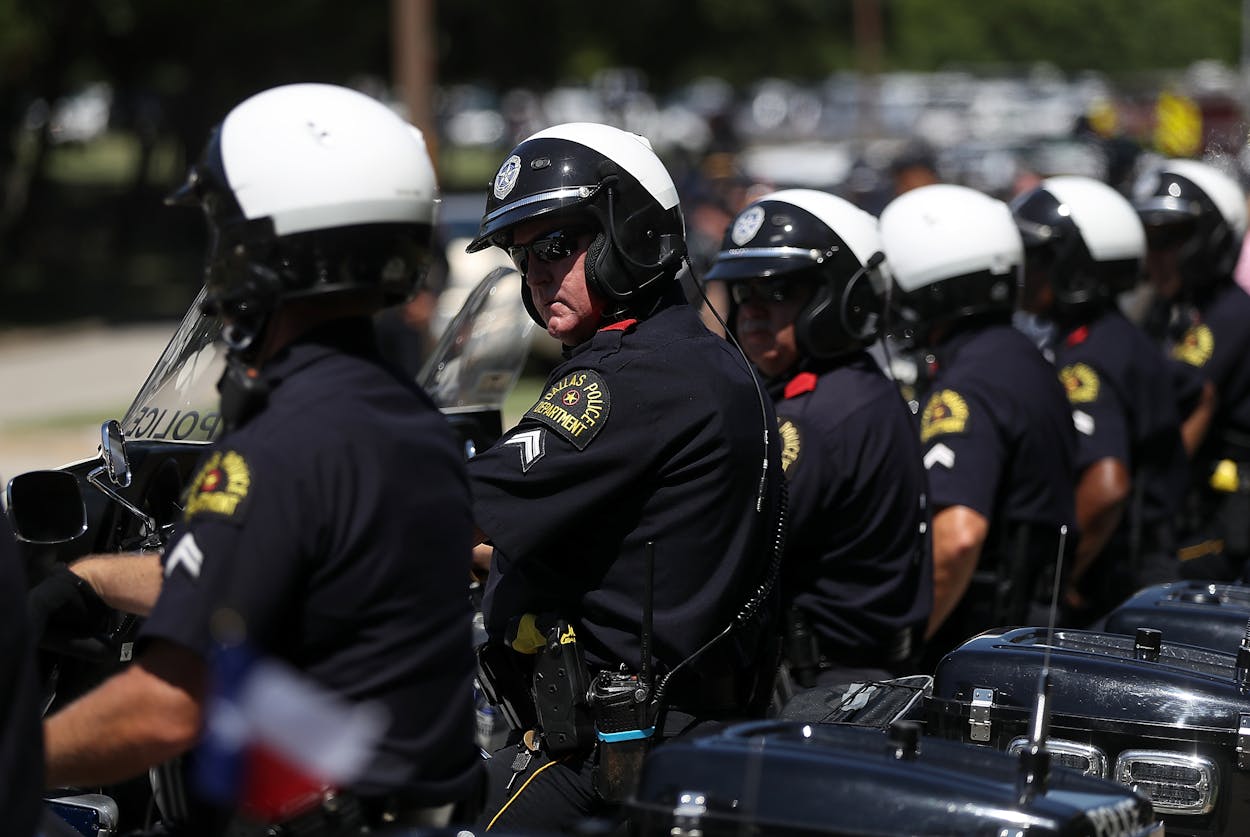After two shootings targeting police officers in Dallas and Baton Rouge, there’s been an uptick in the national conversation about how best to support law enforcement. Politicians and lawmakers such as Lieutenant Governor Dan Patrick, who used his platform during a town hall on race and policing to ask President Obama if he was sure law enforcement knew in their “heart” that he supported them, have been at the forefront of this renewed dialogue. Governor Greg Abbott has also showed support for law enforcement by announcing the Police Protection Act, a proposal that aims to increase penalties for crimes against law enforcement and would reclassify an attack on an officer as a hate crime.
Abbott hopes that the act will be passed in the 2017 Legislative session. For their part in the upcoming session, law enforcement groups plan to bring up an issue that they somewhat disagree with Abbott on: open carry. According to the Texas Tribune, some groups intend to request revisions to open carry. Along with other issues such as restoring funds and improving employee benefits, Charley Wilkison, the executive director of the Combined Law Enforcement Associations of Texas, wants to recommend changes to the law to make it easier for law enforcement to handle open carry.
“I expect to stand in committee and say all our rights are abridged everyday,” Wilkison told the Tribune. “You still can’t even yell ‘fire’ in a theater. So my freedom of speech is abridged just like yours. There is a greater good called the community. We’ll try to make our stand there.”
Open carry has been a point of contention between Texas lawmakers and law enforcement since the 2015 legislative session. Republican lawmakers, buoyed by Abbott’s promise to sign any bill expanding gun rights that landed on his desk, pushed to pass the open carry and campus carry laws, even as law enforcement groups around the state opposed such measures. There were concerns that open carry would make situations such as active shooters more dangerous as law enforcement tried to figure out who was a threat and who wasn’t. During a Senate committee hearing on the bills in February 2015, Austin Police Chief Art Acevedo referenced data that showed that 75 percent of Texas police chiefs surveyed said they were opposed to open carry. It was later in May that the concerns of police officers were taken into consideration, and lawmakers removed a portion of the open carry bill that would have prevented law enforcement from checking people for gun licenses if they were openly carrying a gun.
The night of the Dallas shooting, one of the concerns of law enforcement was realized as they tried to figure out if any of the people with visible guns during the protest were active shooters. During the confusion, the Dallas Police Department Twitter account even shared a picture of Mark Hughes, who was carrying a rifle (which was legal before the open carry law passed), and called him a suspect. Hughes was quickly proved innocent thanks to other protest attendees responding to the tweet, but according to Dallas Police Chief David Brown, Hughes was just one of twenty to thirty protestors with guns that law enforcement cleared as suspects.
“Someone is shooting at you from a perched position, and people are running with AR-15s and camo gear and gas masks and bulletproof vests, they are suspects, until we eliminate that,” Brown said in CNN’s “State of the Union” the Sunday after the shooting.
Although law enforcement officers have expressed appreciation for Abbott’s Police Protection Act, the law is at best redundant, and at worst it could actually complicate prosecuting crimes against police officers. Crimes against law enforcement already come with higher penalties, and hate crime classifications are intended to protect people based on unchangeable characteristics such as race and sexual orientation, not occupations. According to Cheryl Drazin, the Southwest Civil Rights Counsel at the Anti-Defamation League, seeking hate crime classification would make cases harder for prosecutors.
“They’d have to prove, beyond a reasonable doubt, that the perpetrator attacked the officer, and that that act was committed because the person was a police officer,” Drazin told KERA News. “That additional burden, that specific intent, would make prosecutions more difficult, and not easier.”
So though the Police Protection Act seems to have good intentions, it’s helpfulness is doubtful. What might actually be helpful in protecting police officers is examining their concerns about a law they stated would make their jobs more dangerous. This time around, will politicians and lawmakers like Patrick and Abbott—who are strong supporters of open carry and expanding gun rights—continue to support law enforcement who want to make changes to open carry? The upcoming legislative session might be an opportunity to see how much support they’re willing to give.








